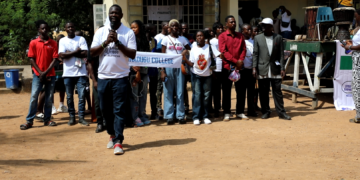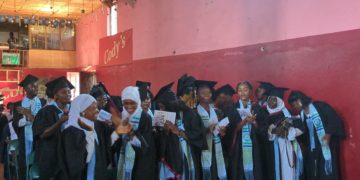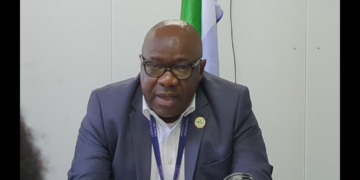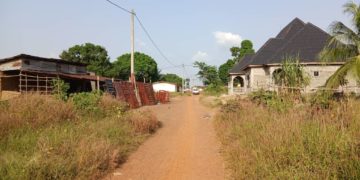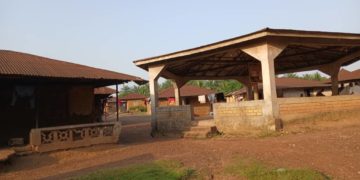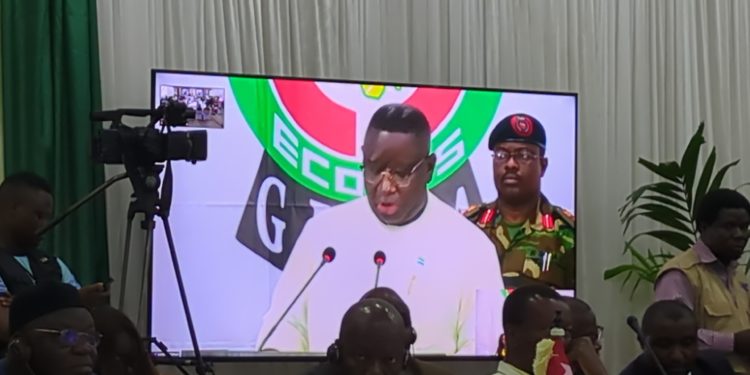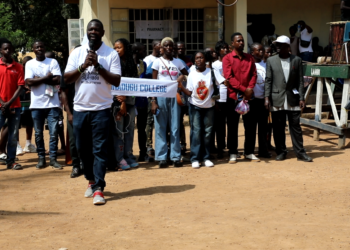By Kemo Cham
Sierra Leone’s President Julius Maada Bio has reiterated his government’s commitment to fighting financial crimes in line with the mandate of the Inter-Governmental Action Group Against Money Laundering in West Africa (GIABA).
In an address to delegates of the 29th Ministerial Commission meeting of GIABA in Freetown, Bio also called for “deeper commitment” among member states to collaboration and collective action in combating money laundering, terrorism financing and proliferation of weapons of mass destruction.
“We stand at a very critical juncture in our collective fight against transnational financial crimes,” he said during the opening ceremony of the meeting at the New Brookfields Hotell.
GIABA is the specialized agency of the Economic Community of West African States (ECOWAS), and it is tasked with fighting money laundering, illicit financial flows and counter-terrorist financing within the region.
This week, Sierra Leone hosted the agency’s biannual Technical Commission/Plenary and Ministerial Committee Meeting, which brings together heads of Financial Intelligence agencies from the member countries, experts in financial crimes, regional and international partners to discuss progress and share experiences concerning challenges faced in implementing effective Anti-Money Laundering and Counter-Terrorism Financing (AML/CFT) measures.
The week-long event climaxed with the Ministerial Committee meeting on Saturday, November 23rd.
Among others, President Bio in his statement warned of the threat posed by the growing sophistication of criminal networks in the region, thanks partly to their exploitation of technological innovation. He said countering the criminals’ actions require collective and collaborative efforts.
“We must not lose sight of the mutuality of our efforts in enhancing regional and ultimately global security, thereby unlocking the sustainable economic development and growth,” he said.
President Bio remarked that 2024 presented both challenges and progress in ECOWAS’s shared objective to strengthen measures gainst transnational financial crimes. And he urged the delegates to ensure that frameworks developed at the end of the meeting do not just remain in shelves, rather, they be used to drive impactful change.
Bio also outlined his government’s focus in efforts against financial crimes, notably to review and strengthen national AML/CTF laws and regulations with the goal of meeting the highest international standards. He said his administration will also invest in training to equip the relevant agencies with tools needed to effectively combat financial crimes.
His administration’s priority list in fighting financial crimes, he added, also included enhanced information exchange mechanism and fostering greater cooperation with regional and international partners.
“Over the past six years, I have demonstrated unwavering commitment to the fight against money laundering and countering financing of terrorism, both domestically and on the international stage,” he said, noting that this commitment is reflected in Sierra Leone’s alignment with global standards.
The ministerial committee, comprising ministers of security, finance and justice of member countries, is the policy making arm of GIABA. It advises the authority of heads of state for decision on matters of fighting financial crimes.
At the top of the agenda of Saturday’s meeting was the adoption and approval of the Mutual Evaluation report on Sao Tome and Principe, the last report on the current cycle of evaluation by GIABA.
The Mutual Evaluation process provides an analysis of the level of compliance of member countries with the Financial Action Task Force (FATF) recommendations.
FATF is an inter-governmental organization that leads global action to tackle money laundering, terrorist and proliferation financing. Its recommendations are the basis on which all countries should meet the shared objective of tackling money laundering, terrorist financing and the financing of the proliferation of weapons of mass destruction.
The ministers were also expected to look at the Follow-Up Reports of three member states – Nigeria, Sierra Leone, and Senegal – as well as several memorandums geared towards ensuring continuity and effective implementation of the FATF Standards.
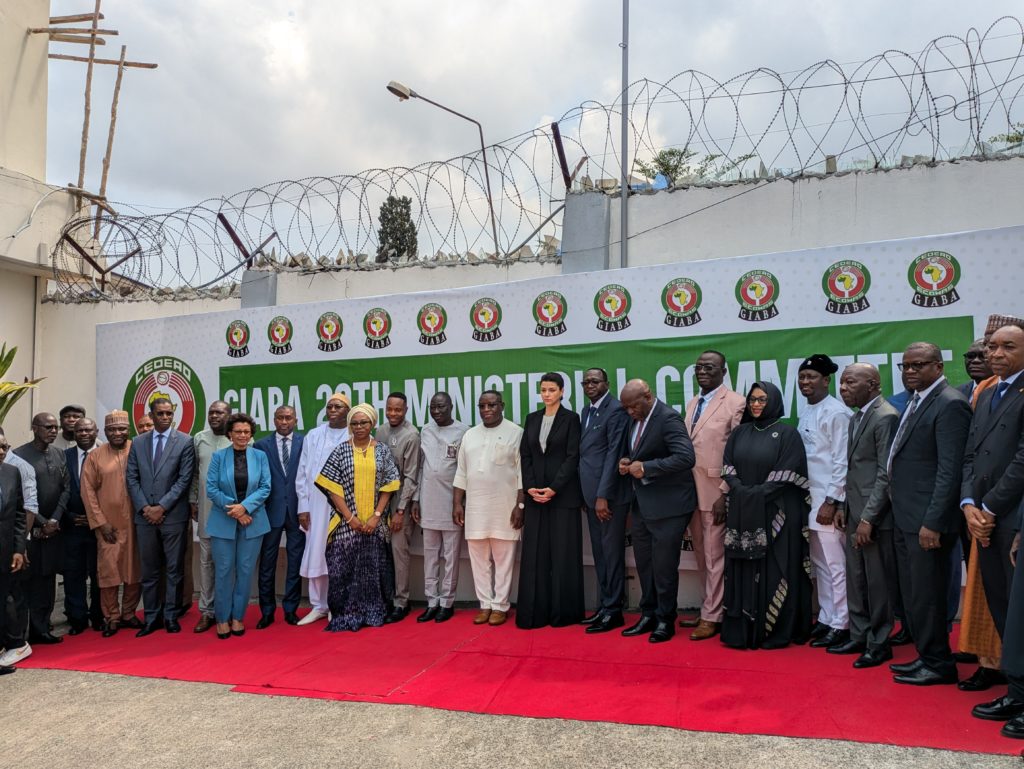
Saturday’s opening ceremony was also graced by the President of FATF, Elisa de Anda Madrazo, who, in her address to the West African ministers, highlighted the importance of financial integrity and combatting illicit financial flows for sustainable development, safer society and attraction of foreign investment.
It’s Madrazo’s first visit to West Africa since taking up the Mexican Presidency of the FATF in July this year.
She stressed the importance of strengthening partnerships and cooperation between the global agency and GIABA, as well as how a risk-based approach to tackling financial crime can benefit countries with fewer resources in helping to safeguard and strengthen their economies.
Ahead of the event, Madrazo was quoted in a statement hailing GIABA’s commitment to fighting financial crimes.
“GIABA has shown strong commitment to clamping down on money laundering, terrorist financing and proliferation financing, having completed its round of mutual evaluations” she said.
“All countries in the region now know what they need to do to close the gaps to keep dirty money out. International cooperation is vital to protecting the global economy, and so it is positive to see GIABA ministers coming together to provide strategic direction to GIABA on the fight against illicit finance at the regional level.”

